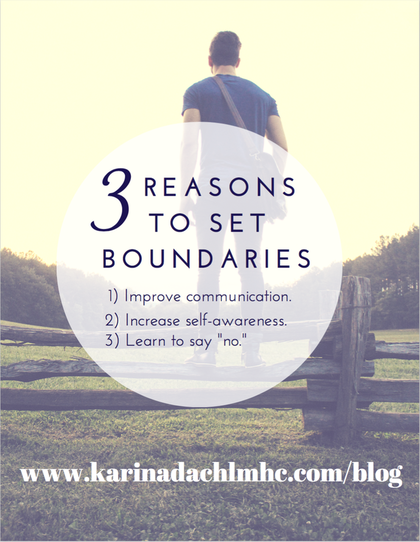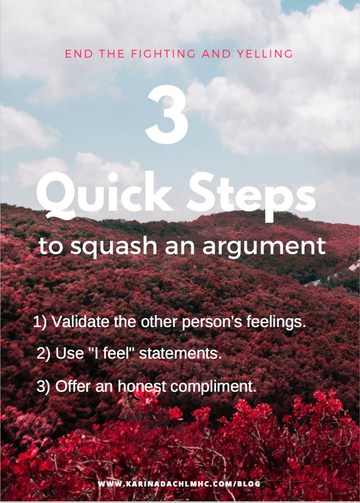USA Today estimates over 40 million Americans will be traveling this Thanksgiving. We spend hours, sometimes days, in cars, trains, and airplanes just to be with our families/friends on the Holiday, sometimes even when we anticipate a needed vacation after we get back. No matter how dreadful we feel it may be, we manage to get ourselves through it. But what if this year we decided to shake things up and do things a little differently? Here are 5 tips that will help:
1. Identify your goal Before you head out or welcome your guests in think about your goal. Remember to keep it as specific and attainable as you can. Start by asking yourself questions. Here are a few to get you started:
2. Do your research Give yourself a refresher course on the family members and friends you are about to see. Social media such as Facebook can help. Don’t get carried away, a brief overview will do, but the more you know the more you’ll have to talk about. Check out if they’ve found a new job, started dating someone, recently had a break up, just got back from a trip or headed some place new. Knowing some basics can break the ice even when you feel you don't have much in common with the person you find yourself talking to. 3. Take a time out Seeing people you haven’t seen in a while can feel overwhelming. If you find yourself feeling anxious or irritable, allow yourself a moment to pause and reset. You can always find space to be alone. Don't hesitate to step outside or excuse yourself to the bathroom if you'd like. It can be a good idea to privately assess your thoughts and feelings. 4. Embrace that “get me out of here” feeling You probably anticipated feeling this way for at least some of the holiday celebrations. Since you expected it, welcome it. The longer you tolerate this feeling, the less you’ll feel bothered by it. Try it. See if it works.You may find that the harder you try to get rid of this feeling, the harder it will be for you to move past it. Accept the feeling without judgment and allow the feeling to be. Just sit with it until it changes on its own. 5. Reward yourself Don’t forget to acknowledge your accomplishments. It is so easy to minimize our successes, but remember to reward yourself for your effort. If you feel like you didn’t do as well as you hoped, don't worry! There's always next year! Happy Thanksgiving. 1. Identify desired outcome.
Before you make a decision think about what you are aiming to accomplish. Emotional decisions can sometimes be impulsive and not be well thought out, which is why it’s usually a good idea to take a step back to make sure you’re aiming directly at your target. Otherwise, you might end up with an outcome you didn’t intend. 2. Check your facts. I am sure you know this, but humans are emotional creatures. That being said, our feelings and thoughts tend to trick us and distort reality. Perspectives can be biased and thus, without the facts, we may find ourselves making emotional decisions that are based on distorted thoughts and feelings. Who would want that? One way I recommend checking the facts is by writing them down or using a close friend or therapist as a sounding board. 3. Go with your gut. At the end of the day there is something to be said for just going with your intuition. This can be difficult for people who have anxiety disorder or obsessive compulsive disorder. At this point, if you are still struggling with making a better decision flip a coin. Commit to whatever side the coin lands on and move on to the next decision. 1) Accept your feelings.
Remember, you are allowed to have feelings and experience negative emotions. Give yourself permission to feel whatever you are going through. When you judge yourself for feeling upset or sad you are sending your brain the message that those feelings are not ok to have. Considering we can’t control our feelings why judge them at all? Embrace your feelings, allow yourself to have them, and resist placing judgment on yourself. 2) Take responsibility for your part. Maybe you’ve heard of the phrase, “it takes two to tango.” Well, when it comes to relationships and conversations it usually works better when two people are involved. Sometimes however, issues arise, feelings get hurt, and one person or many people feel like they have been harmed. One of the best ways to forgive someone is to take responsibility for your part in the relationship. When we are accountable for our actions, even when we believe we’ve done nothing wrong, we feel more in control and empowered. Building ourselves up like that makes it easier to let go of the past, forgive, and move on. 3) Live in the present, let go of the past. The Buddha once said, “holding on to anger is like grasping a hot coal with the intent of throwing it at someone else; you are the one who gets burned.” I love this quote because it illustrates such a true message. When we are focused on the past, ruminating about what was said or done, we are only hurting ourselves. Be mindful of the here and now. The past is gone, the future doesn’t exist, all we have is the present moment. Cherish it. when you wait for what you want you’ll find yourself missing out. Things don’t tend to just happen to you. You have to be proactive and action forward to reach the goals you set for yourself. If talking to a crush and asking them on a date is the goal, sitting around waiting and wishing won’t get you any closer to that goal. You have to roll up your sleeves and take a chance. Can’t win the game if you never play, right? Here are three reasons why asking your crush out on a date first is the better choice.
1) Being assertive is attractive. There was a study published by Cosmopolitan showing that 95% of men were more attracted to women who initiated the first date. Going after something you want is a quality most people admire. Who wouldn’t want to date someone who’s a go getter? 2)What’s the worst that could happen? If the worst case scenario is they’ll say “no” take a moment and think about what happens AFTER that. Do you melt into a fleshy puddle? Do all the strangers around you turn towards you, point their finger, and laugh? Do all your friends leave you because they don’t want to be friends with you now that they realize your crush doesn’t share the same feelings? It’s likely that none of the above scenarios would actually come true, although anything is possible, so why allow those intrusive thoughts to dictate possibilities? Jump in and take a chance, what’s the worst that could happen? 3) Practice makes perfect.Maybe you’ve heard this before, but I remember being told “dating is a numbers game.” The more you try the better you get. The more you ask, the more you fail, the more someone takes you up on your offer, the better you get. 1) Introduce yourself.
“Hey, how are you? I am (insert name here).” It seems simple, but it’s the most common thing we forget to do when we are feeling anxious and we see someone we want to talk to, or we are standing in a social circle and don’t know anyone. Start with “hello, how are you? My name is (blank).” That will give you the opening line you need to invite a conversation and learn more about the other person/people. 2) Compliment something about the other person. “I like your (blank). Where did you get it?” The power of a compliment is illustrated by Mark Twain when he said, “I could live for two months on a good compliment.” Maybe you know this, but people generally appreciate a compliment and based on research, we know people are more prone to like a stranger if they were complimented by them. So, if you are in a social setting and want to come across as likeable throw a few compliments at the person you are talking to and see what happens. Try complimenting them on something they have or something they’ve done (watch, blouse, bag, hat, shoes, speech, food dish, etc.) 3) Enquire about the other person’s hobbies and interests. “What’s your favorite way to spend your time?” Take the time to learn what the other person is all about. Find out what motivates them, what their passions are, what their story is. Ask “what” and “how” questions rather than “when” and “where.” Starting a question with “what brought you out tonight?” or “how did you hear about this party?” allows for more open ended conversation and for you to learn more about the other person. 1) Establish a bedtime routine.
A bedtime routine is a good way to get your mind and body prepared for rest. Think of it as an opportunity to wind down and start relaxing. One way to establish a bedtime routine is to get in bed at the same time every night. This way you start teaching your body when it’s time to start feeling tired. Before you know it, your body will start telling you its bedtime before you even realize what time it is. If it feels difficult the first couple of nights, it means you’re doing it right. Stick with it, it’ll get easier. 2) Turn off electronics. Many people tell me that their screens help them fall asleep. They suggest their television, phone, or iPad help their eyes get tired so they fall asleep faster. However, contrary to common belief, science has proven this theory otherwise. Science discovered the blue LED lights behind the screen stimulate the brain, tricking it into believing its day time, so it’s actually more difficult for you to fall asleep and stay asleep. Turn your screens off 30 minutes before bed to make sure your brain isn’t activated. 3) Resist napping. Napping during the day can set off your entire sleep schedule. The objective here is to be tired at the end of your day and napping can confuse your body. *What to do if you feel tired during the day:
1) Validate the other person’s feelings.
In the heat of an argument it may be difficult to validate the opposing side. However, if your goal is to change someone’s mind about a situation you will likely feel disappointed. The truth is people don’t have the ability to change other people’s minds. If a perspective is shifted its because that person made a choice to shift their own perspective. When we learn to find truth in what people are saying to us and accept their feelings as they are what we find is a person who is disarmed and less defensive. During an argument, if the goal is to stop arguing, using a disarming technique is essential. Validating the other person’s feelings can sound something like: “It’s true that you feel disrespected by my actions.” “It makes sense why you would feel that way. I’m glad you told me.” 2) Use “I feel” statements. Using “I feel” statements helps the other person understand that they are not personally responsible for your feelings. They feel less blame and are less defensive when listening to what you are saying. Read these two statements out loud
3) Offer an honest compliment. This is one of my favorite disarming technique because it usually shocks the other person into silence. Think about your response the last time you received an honest compliment. Did you start yelling nasty things or did you take a second and appreciate it? Sometimes a second is all we need to realize how silly we are behaving. Try it the next time you find yourself in an argument and tell me how it went. Leave your comments below!
1) Failure is good. You may be thinking “that’s a ridiculous statement,” but there is no such thing as a mistake if it’s a lesson learned. How are we supposed to become great if we stop trying to become better at something? Maybe you know this, but Thomas Edison failed 1,000 times before successfully creating the lightbulb. When he was interviewed he was asked what it felt like to fail 1,000 times. He responded by explaining he didn’t see his attempts as failures, but as steps to help him achieve his goals. That is a perspective that allowed him to reach greatness. I see this dynamic between child and parent all the time. Child attempts an activity that is challenging like a sport or going to a social event. Child is not immediately reinforced with positive emotions, they may feel like they aren’t the best at it right away and they turn to mom or dad looking for reassurance. Mom or dad turn to the child and say “that’s ok. You are the best. Don’t worry about not succeeding at what you tried. We’ll try something different, something that will be more fun, something you’ll be good at.” What kind of message are these parents sending their children? It sounds to me that these parents are telling their kids: "It’s not ok to fail." "You must be good at whatever you try." "You don’t have the strength or internal resources to tolerate discomfort." "I will always fix whatever ails you." * Are these the messages we want to send to our children? 2) Patients builds strength. A psychologist named, Walter Mischel, conducted an experiment at Stanford University demonstrating the benefits and longitudinal effects of delayed gratification. The experiment was called “kids marshmallow experiment.” The children were given a choice. They could have the one marshmallow on the table right now or wait 15 minutes and have a larger reward. What he found was that children who could wait longer were more likely to have better life outcomes, go further in their academic career, and have overall greater life measures. So the next time your child asks you for something and they yell and scream that they want it now, think about their life in the long term. Will the decision to give them what they want right away help them in the future or hinder their success? 3) Setting clear expectation reduces confusion. Setting clear expectations with your children does two things. First, it reduces the frequency of arguments and negotiation. When expectations are clear it is likely to hear less of, “you didn’t tell me” or “how was I supposed to know?” Secondly, it teaches your children boundaries. When you set expectations as parents you are establishing boundaries for yourself, your children, and your family system. You are teaching your children how to set boundaries by modeling it for them and helping them understand why boundaries are important. This in turn will provide them with the necessary skills to develop their own expectations and be able to implement healthy boundaries as they develop in life. We all know that stress is a leading cause of depression, but there is more you may not be aware of. Not only are stress and depression linked, but we are discovering that stress can trigger inflammation and the inflammation can cause depression. Leading research journals have recently found a connection between inflammation and mental illness, specifically depression.
When the body experiences stress a hormone called cortisol is produced by the adrenal gland and distributed in the blood stream to help regulate the body. However, if cortisol levels get too high or too low it can cause inflammation. Here are 3 lifestyle changes that will reduce inflammation, lift mood, and restore overall wellness.
Remember C.E.L.L.1. Commit to the changes. Before you implement change in the home make sure you are ready to follow through with the adjustments. If the rule is not to have screens at dinner time make sure YOU don’t have your screen out either. Try not to talk about making any changes unless you are serious about the modifications. Your kids watch and listen much more closely than you think. Set a good example for them and commit to the things you say.
2. Entitlement. Screens are a privilege. Your child has a screen because you have gifted them a screen. It is important for them to remember that and for the screen to be something they learn to earn. Whenever your child is able to make choices based on your family values and principles those positive choices can be rewarded with screen time. For example, good grades = screen time, being respectful = screen time, completing chores = screen time, etc. If your kids choose not to make value based decisions they are ultimately making the choice not to get rewarded. 3. Let go of your gadgets. Dock your gadgets in a central area of the house at night. Gadgets are distracting. When electronics are out of your kid’s rooms they will A) spend less time in their room B) spend more time engaged with family and C) have more time to unwind and get a good night’s rest. Try it as a family. You may benefit from it as well. Research suggests that the LED blue lights from the screens tricks the brain into believing its daytime and disrupts your REM sleep cycle. The literature points out that people who fall asleep to screens feel less rested in the morning. 4. Limit your child’s screen time. It is ok and, in fact, highly recommended to limit your child’s screen time usage. Your child does not need to be entertained by their electronics 24/7. Rather than fostering creativity and imagination, your child’s constant access to electronics may actually negatively impact their developing brain. Give your kids a break. Encourage them to access the present moment and help them learn to be mindful of the here and now. We must teach our kids how to balance the use of electronics since we live in a world that utilizes this technology on the regular. There are positive qualities of screens, but it is the job of the parent to teach their child how to use their screen responsibly. Some of today’s youth are drowning in a cyber world they call reality and it is taking a toll on the way they understand themselves, the world, and others. |
|||||||||





















 RSS Feed
RSS Feed
